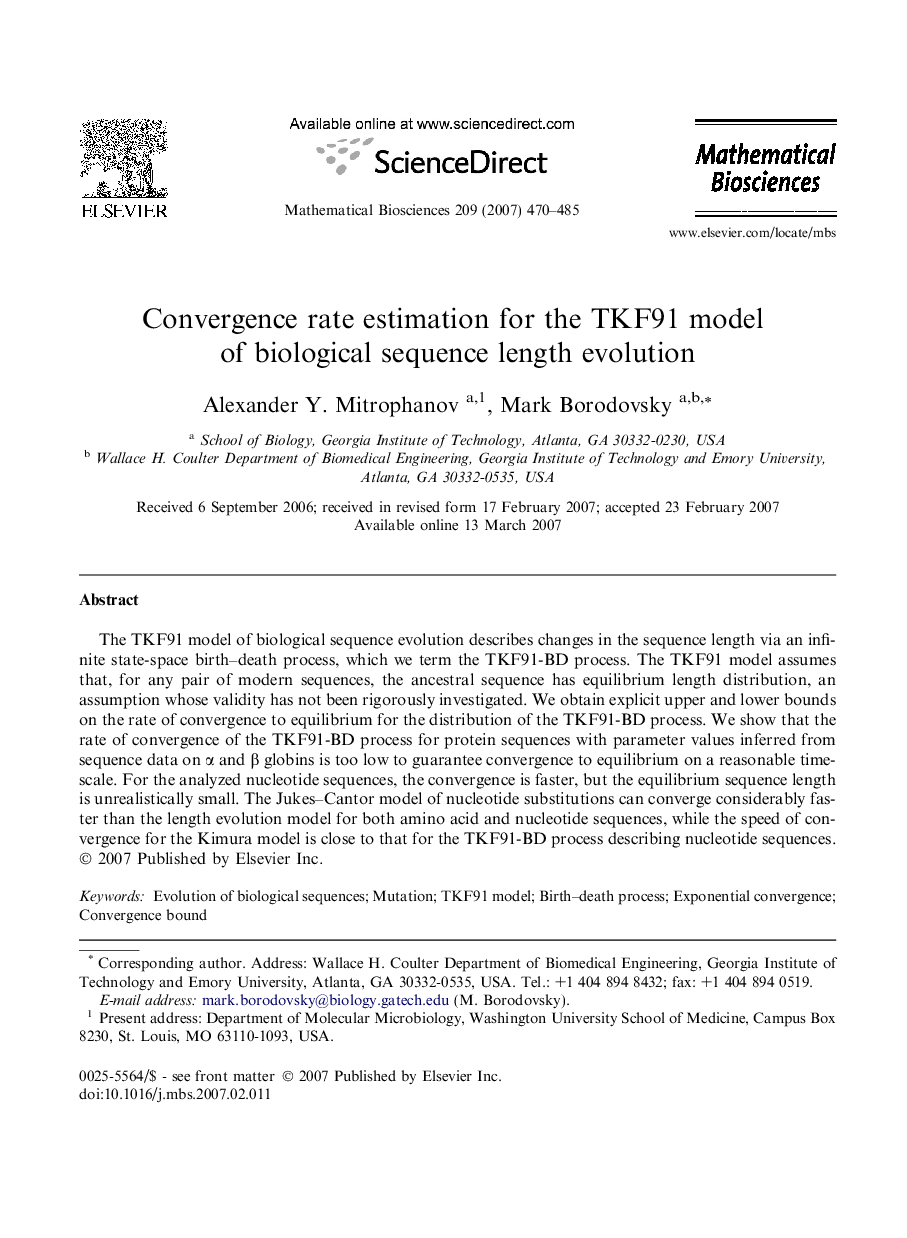| Article ID | Journal | Published Year | Pages | File Type |
|---|---|---|---|---|
| 4500959 | Mathematical Biosciences | 2007 | 16 Pages |
The TKF91 model of biological sequence evolution describes changes in the sequence length via an infinite state-space birth–death process, which we term the TKF91-BD process. The TKF91 model assumes that, for any pair of modern sequences, the ancestral sequence has equilibrium length distribution, an assumption whose validity has not been rigorously investigated. We obtain explicit upper and lower bounds on the rate of convergence to equilibrium for the distribution of the TKF91-BD process. We show that the rate of convergence of the TKF91-BD process for protein sequences with parameter values inferred from sequence data on α and β globins is too low to guarantee convergence to equilibrium on a reasonable timescale. For the analyzed nucleotide sequences, the convergence is faster, but the equilibrium sequence length is unrealistically small. The Jukes–Cantor model of nucleotide substitutions can converge considerably faster than the length evolution model for both amino acid and nucleotide sequences, while the speed of convergence for the Kimura model is close to that for the TKF91-BD process describing nucleotide sequences.
